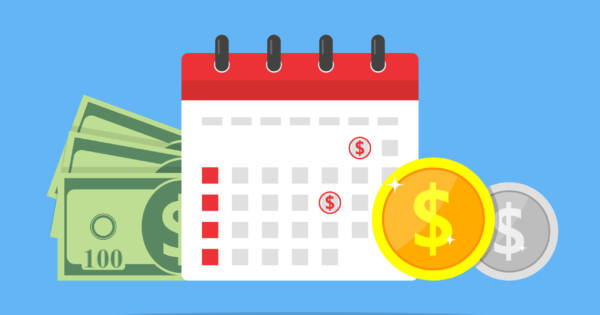We all have trouble controlling our impulses from time to time. This is true whether we’re shopping, dieting, or simply trying to stick to a workout routine. Sometimes, we just feel like following our instincts for something new and different. Unfortunately, giving in to those urges, especially when it comes to spending, can lead to debt and other financial problems. If you’re concerned that you have a problem, here’s how to stop impulse spending once and for all.
Impulse Buying Is Very Common
The first thing you should know is that you’re not alone. According to a report from CreditCards.com, five out of six Americans have made impulse purchases. Not only that, but about one-third of Americans making $75,000 or more have spent more than $1,000 on an impulse purchase. While those who earn less often only make smaller impulse buys — maybe just a few dollars per shopping trip — it’s easy to see how things can get out of hand.
Even if you aren’t spending more than $1,000 on an impulse purchase, unplanned spending can quickly add up and break your budget. As a result, it’s important to be extremely careful about the types of impulse purchases you make. In short, you have to keep those “treat yo’self” urges under control. One of the best things you can do is recognize your spending triggers — and then come up with ways to counteract them.
Gender Plays a Role
CreditCards.com also reports that, in some cases, impulse buy triggers can depend on your gender. The report indicates that men are three times more likely than women to make impulse purchases when intoxicated. On the other hand, women are more prone to impulse buying when they are sad. However, both men and women are likely to make impulse buys when they are excited. Excitement is the most common emotion cited at the time of an impulse purchase.
Even within these statistics-based generalities, you have to look for information about yourself. Try to figure out what your own personal triggers are. Many people make impulse purchases when they are feeling a little down. Maybe you crave that small amount of dopamine that “retail therapy” provides. Or you might be prone to extra spending when you’re tired, hungry, or after a few drinks. All of these conditions are common factors in impulse spending.
 Shutterstock
ShutterstockWhat Are Your Triggers?
For many of us, impulse spending doesn’t just happen. It’s the result of some sort of trigger. Impulse spending is more likely during times when you are tired, sad, or especially happy. Do you notice that you spend more money when you are a little depressed? Does spending help you feel good, no matter how temporary those feelings are?
What about spending when you are very happy? You might be so excited that you don’t pay attention to what you are spending. Why are you even spending that money. It’s easy to throw money around when you feel confident and happy.
Other triggers are more situational. If you shop while you are hungry, you are more likely to spend impulsively on food you don’t need – or even food that isn’t very healthy.
Being in Tune is The Key
Pay attention to your emotions when you make impulse purchases. Try to think back to how you were feeling the last time you made an unexpected buy. This can help you identify triggers to your impulse spending.
Once you have an idea of what is likely to trigger your impulse purchases, you can take steps to reduce the likelihood of falling into that trap again. It may not completely stop all your impulse purchases, but you can significantly reduce how much of your wealth is leaked to a sudden lapse of focus.
 Shutterstock
ShutterstockHow To Limit Impulse Buys
One of the best ways to limit impulse buys is to institute a personal, general waiting period for most purchases. Create a vetting process for your purchases. If you know that something hasn’t passed the vetting process, put it back. Promise yourself that you’ll revisit the purchase after a self-imposed waiting period. Before you get to the cashier (or the online check out), take a moment to reevaluate your potential purchases. Try to judge them (impartially) and make sure they are not impulse buys.
Another good way to reduce your impulse spending is to limit your access. When you have access to all of your funds, it’s tempting to use them. There’s nothing to stop you from tapping that debit card or swiping that credit card. If you feel vulnerable to a trigger, consider limiting access by only carrying cash on your next trip. Don’t even bring the plastic. This forces you to think your purchases more. You won’t be able to spend impulsively because the money will disappear too fast.
Planning Ahead
If you are feeling sad, don’t bring as much money on your next shopping trip. Better yet, simply leave your credit cards at home. The same rule works if you know that you’re going out with friends to celebrate. You might be influenced by them or the occasion (or you might be intoxicated by the end of the outing). Planning ahead for impulse purchases can be a great way to avoid breaking your budget.
If you can’t live without the convenience of a credit card, you should consider choosing a card with a low limit. Sign up for a spare card that only has a $500 or $1,000 limit. This can help reduce your impulse spending, since you know there’s only a little bit of wiggle room on the card. If you can’t stop your online shopping, consider blocking certain sites. You may also be able to place limits on your spending via various online accounts (credit card accounts OR the retailer website itself). Just getting yourself to a point where you are aware of your impulse spending can be a good start.
 Shutterstock
ShutterstockMore Ways to Stop Impulse Spending
Controlling the impulses is all about controlling the six inches between your ears. Do you want a list you can easily refer to on how to stop impulse spending? Here are a few more actionable ways to get you to stop. You can do it!
Cash Only. Really.
Stop using your debit or credit card and put your daily expenses on a cash-only basis. Decide in advance how much you’ll have for pocket cash and carry only that amount with you. When it’s gone, it’s gone.
For most of us, spending cash is a lot more painful than swiping a card, so we’re more likely to ask ourselves if what we’re buying is really necessary.
Have a Home For Every Dollar
Don’t wait to put money in savings until the end of the month, transfer it over as soon as you are paid so that there is less temptation to spend it. Again, decide in advance how much money to allocate for personal expenses and stick to it.
Use automation whenever possible. If you pay yourself first by making automated transfers to savings and your investment accounts as soon as your paycheck hits the bank account, then you won’t get a chance to spend as much.
Form Good Habits
Get in the habit of planning in advance so that you won’t have to buy things like drinks and food. Plan shopping trips for after you’ve eaten and bring a bottle of water with you while running errands. Bring a lunch and snacks to work and all-day excursions so that you can save money on meals. You’ll probably eat a lot healthier too.
Use a list when you must go shopping. This will not only keep you from buying things that you don’t need, but it will also stop you from forgetting the things that you do need.
 Shutterstock
ShutterstockGive Yourself Fewer Chances to Be Tempted
Stay out of stores as much as possible. The more often you go into a store, the more likely you are to buy something. Instead of going window shopping, try going to the library instead.
And keep busy! Find hobbies and activities to fill your days, preferably ones that don’t require a constant outlay of cash. Taking walks, playing sports in the park and board games with friends and family are great ways to spend your time and really connect with others.
Practice (And More Patience)
Instead of buying right away, give yourself a day or two to think it over. In this day and age, you’ll almost always be able to get it later so don’t fall prey to “limited time only” offers. Perhaps you will have to pay more if it turns out you need it later, but this will easily be evened out by all the times you didn’t buy something you didn’t really need.
Use the waiting period to consciously think about all the very good reasons for limiting your consumption beyond just saving money. The more reasons you have to limit your spending, the better. For example, not only is junk food expensive, it’s also unhealthy.
 Shutterstock
ShutterstockDe-cluttering Is Truly Beautiful
Get into the habit of de-cluttering your home frequently. This will force you to see how much you are buying that was never really needed. It can be a sobering wake up call to see how much you’ve spent on things that wound up stuffed in a closet after one use – or worse, never having been used at all.
The more you clean up, the more you’ll be reminded to look for alternatives to buying when you need something. Is it something you could rent or borrow? Could you buy used? Can you make substitutions? Is it possible to do without? While it might not seem like impulse spending to buy things you need, for many of us, our idea of “need” is far from reality.
The Bottom Line
We all know the wealth destruction effect of big impulse purchases, but even smaller leaks can wreak havoc. A dollar here, five dollars there, what’s the big deal? While small impulse purchases are easy to write off as being a drop in the bucket, the truth is those drops add up more quickly than we’d like to think and add up to hundreds of dollars wasted every month. The good news is that saving that money will also add up quickly and give us the peace of mind that comes with being more financially secure.
Pay attention to your feelings and your state of mind while you are spending. Notice what seems to trigger your impulse spending. Once you have identified those triggers, you can work to combat them. Look for alternative ways to deal with the trigger. Exercise or meditation can boost your mood, helping you avoid the need to shop. If you realize that your exuberance is leading to spending, consider other ways to channel your energy, such as through volunteer work, or spending time with loved ones.
Limiting your access during times of vulnerability can also help you stay disciplined and focused. Recognize when you are likely to spend impulsively, and then work to combat that situation. You don’t want to find yourself drowning in debt to impulse purchases.
How do you keep your impulse spending under control?








